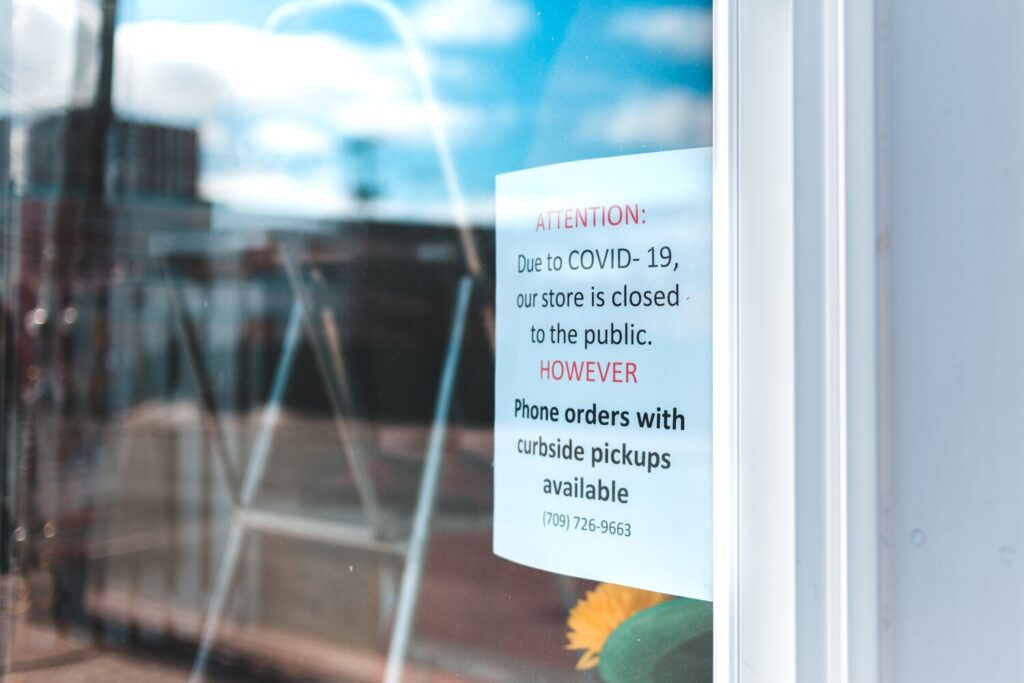Spent years developing your retail network only to find it closing down?

I spoke to a friend today who said he knew the owner of a company that makes garden supplies and they are laying off all their employees and stopping production. It seems unlikely that they will be able to stay in business. The problem is that they have spent years developing an extensive, national retail distribution network that, with the pandemic, is now shutting down. There goes their retail sales. There goes their connection to the consumer. Their sales to Amazon are not enough to keep them afloat.
As he was telling me this, I thought about the pandemic and stay at home restrictions that have spread across the country. What could be more relaxing at this time than working in the garden at home? This should be a time when garden supplies are booming, particularly with Spring upon us.
My suggestion was that they should put together a direct shipping service to consumers and start promoting it. They could probably get FedEx or UPS to help them with it. Perhaps they could reignite sales, survive and ultimately have another profitable sales channel. But the problem was even worse because he said they have no consumer database with which to promote their products.
Again, thinking what I might do if in that situation and recognizing that they are in the garden supplies business, I suggested contacting a publisher like Rodale or companies like Burpee or one of their competitors. Those companies won’t give away their lists but how about offering them a share of sales on top of a list rental fee? It’s all to keep their business alive and cash flow continuing. In the end, they might even have a new source of revenue and way to grow customer loyalty.
I don’t think this is an uncommon situation today. Thousands of companies have developed distribution networks that supply retailers. They’ve invested in relationships with retail chains knowing that these are the people who will place their products on their shelves. And when the shelves are emptied, they’ll reorder through their distributors. The emphasis, then, became low-cost production and smooth logistics to the distribution center. Some national promotion was necessary but all they had to do was their part in getting a good product efficiently to distribution warehouses.
What is forgotten in that all-too-common scenario is the consumer. When retailers close, distributors are left with warehouses that don’t need to be restocked and producers who can no longer produce. Even if the demand is there as may well exist with garden supplies, there is no way to get the product to the consumer unless the producer has developed not just an email database of consumers but also knowledge of what the consumer is interested in.
For many, it’s too late. They don’t have the resources to quickly develop an email database, learn their customers’ needs and preferences and move to direct shipping. Margins, pressed by large retailer and distribution power, have pushed margins so thin that even a month shut down may put them out of business for good. But, if you’re in this dire situation, here’s a list of things you should be doing.
1. If you don’t have your own email list of consumers, think of everyone who may have one that could work for your products. Magazines and non-competitive products in the same market might be a place to start.
2. See if you can rent their list and if that doesn’t work, see if they’d be interested in a revenue split. Give what you’ve got to give in order to stay in business.
3. Think about every organization or non-profit that could gain if you shared income in exchange for emailing their members. (e.g. Imagine with the garden supplier above how many organizations might be interested in helping their members occupy themselves while at home.)
4. Offer a special deal to attract consumers by email and extend a future discount to them for every friend they can get to order too.
5. With every order you get, build your database. Even if you go back to stocking your distribution network when the pandemic is over, your consumer database will be worth more than its weight in gold. For that reason, it’s better to extend your resources now to stay open and gain business later.
6. Treat every email address and row in a database like it’s a person who could be your best customer. What would you say to him or her? You’ll need to ask questions to learn more about them and append everything you learn to their file in your database. You’re building personas, not data.
We follow all of the above for our clients in normal times and, as a result, they’ve been able to smooth out the valleys in demand. Sure, their sales are being affected adversely now but they also know that they’ll be in business in six months with a loyal customer base supporting them.
Oomiji helps companies stay in touch with their customers both in good times and bad. Want to know more? Get in touch and we’ll help you stay in touch.



